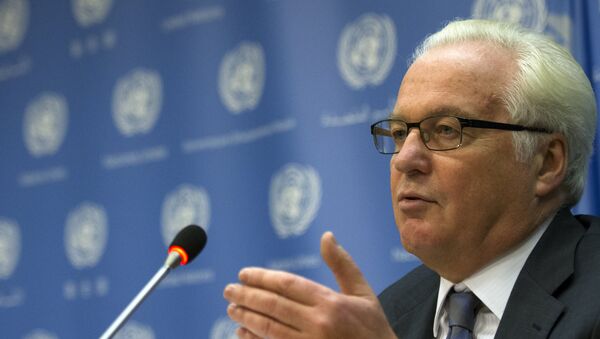"Regarding the interlink between security and development, one must acknowledge the destructive impact on both sides of the equation of the phenomena of unilaterally imposed sanctions which are used by some members of the international community to serve particular political aims," Churkin told the Security Council on Tuesday.
For instance, sanctions imposed at the very beginning of the conflict in Syria not only worsened the position of people in the country, but did not help to resolve the conflict, but on the contrary exacerbated it, Churkin said.
"What do sanctions imposed at various times against Sudan, Zimbabwe, Myanmar have to do with peace? We think the practically unanimously adopted recent General Assembly resolution condemning the anti-Cuban sanctions has a broader significance, namely a growing understanding in the international community of the unsuitability of this practice," Churkin continued.
Last month, amid Washington trying to normalize its frosty relations with Cuba, the UN prepared a comprehensive report in support of abolishing US sanctions, against Havana.
Churkin said that the regular practice of sanctioning undermines not only security in a country, but also its economy, as well as generally contributes to a crisis, if there is an inclination to it, Churkin said, recalling the examples of Iraq, Yugoslavia and Libya.


